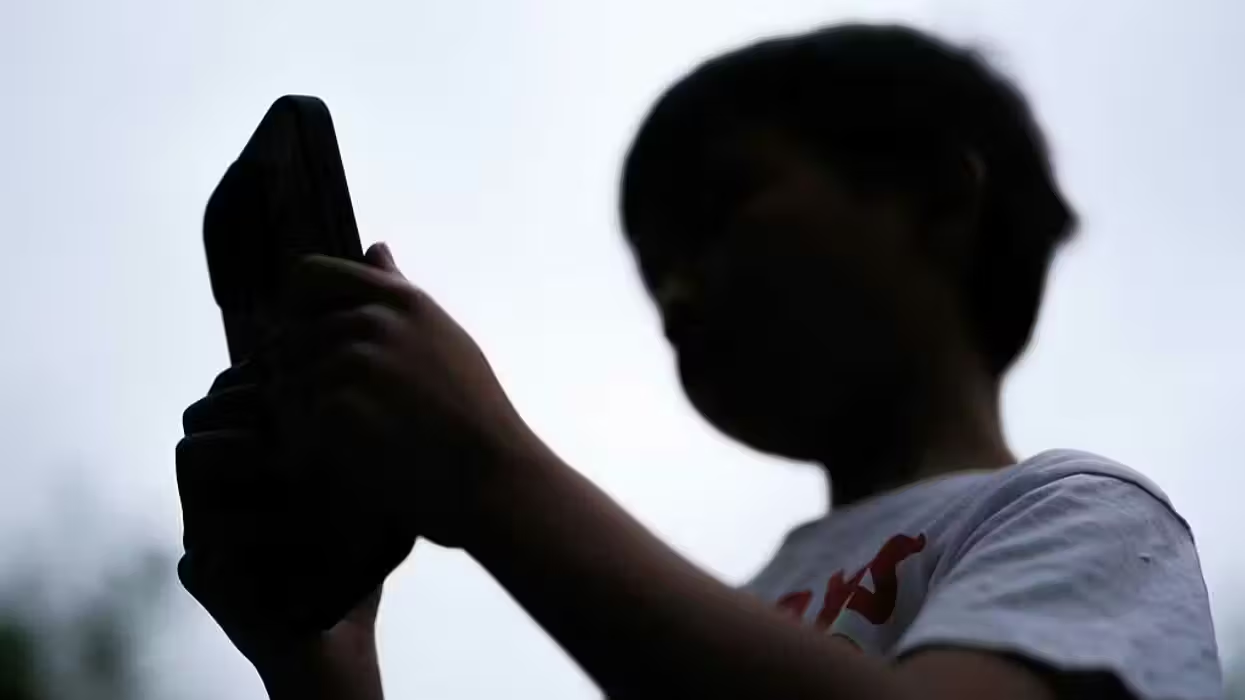© 2025 Blaze Media LLC. All rights reserved.
Professor Receives Death Threats & Loses Her Adjunct Position After Complaining About Christian Crosses
June 04, 2012
"The state of academic freedom is in peril if you can't speak up for the Constitution."
It's a widely-known fact that adjuncts are generally hired on a semester-by-semester basis. This essentially means that colleges and universities are free to let these part-time employees go at any time they so choose. But Sissy Bradford, an ex-professor at Texas A&M University at San Antonio is speaking out about her employer's decision not to ask her back following a controversy over Christian crosses on campus.
Inside Higher Ed has more about the controversy and the events that comprise it:
In the fall, Sissy Bradford took a public stand -- unpopular with many in San Antonio -- about separation of church and state. She was briefly in the news and her view prevailed. Since then, she has received e-mail threats because of her stance. This month, she told the story of those threats to the alt-weekly in San Antonio, which ran an article about them. And the day the article came out, Texas A&M University at San Antonio told her that she would not be teaching in the fall, despite her having previously been assigned four courses.Bradford teaches criminology at the university; she has strong student evaluations (which she shared with Inside Higher Ed) and she has been honored for her teaching. She became a public figure when she complained about crosses that had been installed on a tower that was part of the entrance to the campus. The crosses were put there by a developer, not the university, but Bradford maintained that they were inappropriate for the entrance to a public university campus. Americans United for Separation of Church and State backed her -- and after that organization sent a series of letters to San Antonio and university officials, the developer removed the crosses. That was in November.

The crosses were placed on the building, called "Torre de Esperanza" ("Tower of Hope") in an effort to replicate the historic Spanish missions on San Antonio's south side, MySanAntonio.com, reports. While they were historical in nature, Bradford, among others who have voiced opposition at the school, disagreed with them. Since the tower is on private land, but was built with public money and is at the entrance to a public university, the situation was a complicated one to say the least. In the end, the professor's perspective won out.
Since the drama unfolded, there have been numerous issues that Bradford has lamented. As stated, she has received threats as a result of her stance on the crosses. The professor claims she began receiving troubling e-mails not long after she spoke out about the crosses -- one of which asked if she has "the right to live." This same e-mail went on to describe the professor ending up on a coffin and claimed that she will "reign with" her father, Satan. While she claims she sent these messages to university police, Bradford believes that the threats were not taken seriously.
When the situation didn't appear to gain the attention -- or scrutiny -- of university personnel, Bradford shared her frustrations with a San Antonio outlet called The Current. On the same day the article appeared, Inside Higher Ed reports that the professor received an e-mail from William S. Bush, the interim head of the School of Arts and Sciences.

"I'm writing to inform you that the School of Arts and Sciences will not be able to offer you any classes in the fall semester," the letter read. "If you wish to discuss this matter further, please submit a written request to Dr. Brent Snow, provost and VP for academic affairs. Please note that he will be traveling abroad until Tuesday, May 29."
In Bradford's eyes, her views -- and not her teaching abilities -- are what led to her firing. Texas A&M at San Antonio, though, is claiming that the professor is among 20 who will not be asked back and that The Current article wasn't a factor. Additionally, a spokesperson claims that the university reserves the right to hire and fire adjunct employees at will.
The Texas Tribune has more on the debate, as Bradford weighs her legal options. It seems some in the higher education community are defending her amid the controversy:
Last week, Robert Kreiser, senior program officer of the American Association of University Professors, sent Ferrier a letter questioning the university’s policies and expressing “concern that Bradford’s dismissal may have been in violation of her academic freedom.”Peter Bonilla, the associate director of the individual rights defense program at the Foundation for Individual Rights in Education, a Philadelphia-based organization, sent a similar letter, warning that they are "prepared to use all resources at our disposal to ensure a just outcome in this case."
Bradford, who has a lawyer, is not sure if she will take any action.
"That was my livelihood and my health insurance," she said, regarding the situation. "The state of academic freedom is in peril if you can't speak up for the Constitution."
(H/T: Inside Higher Ed)
Want to leave a tip?
We answer to you. Help keep our content free of advertisers and big tech censorship by leaving a tip today.
Want to join the conversation?
Already a subscriber?
Billy Hallowell is a digital TV host and interviewer for Faithwire and CBN News and the co-host of CBN’s "Quick Start Podcast."
Billy Hallowell
Billy Hallowell is a digital TV host and interviewer for Faithwire and CBN News and the co-host of CBN’s "Quick Start Podcast."
more stories
Sign up for the Blaze newsletter
By signing up, you agree to our Privacy Policy and Terms of Use, and agree to receive content that may sometimes include advertisements. You may opt out at any time.
Related Content
© 2025 Blaze Media LLC. All rights reserved.
Get the stories that matter most delivered directly to your inbox.
By signing up, you agree to our Privacy Policy and Terms of Use, and agree to receive content that may sometimes include advertisements. You may opt out at any time.






